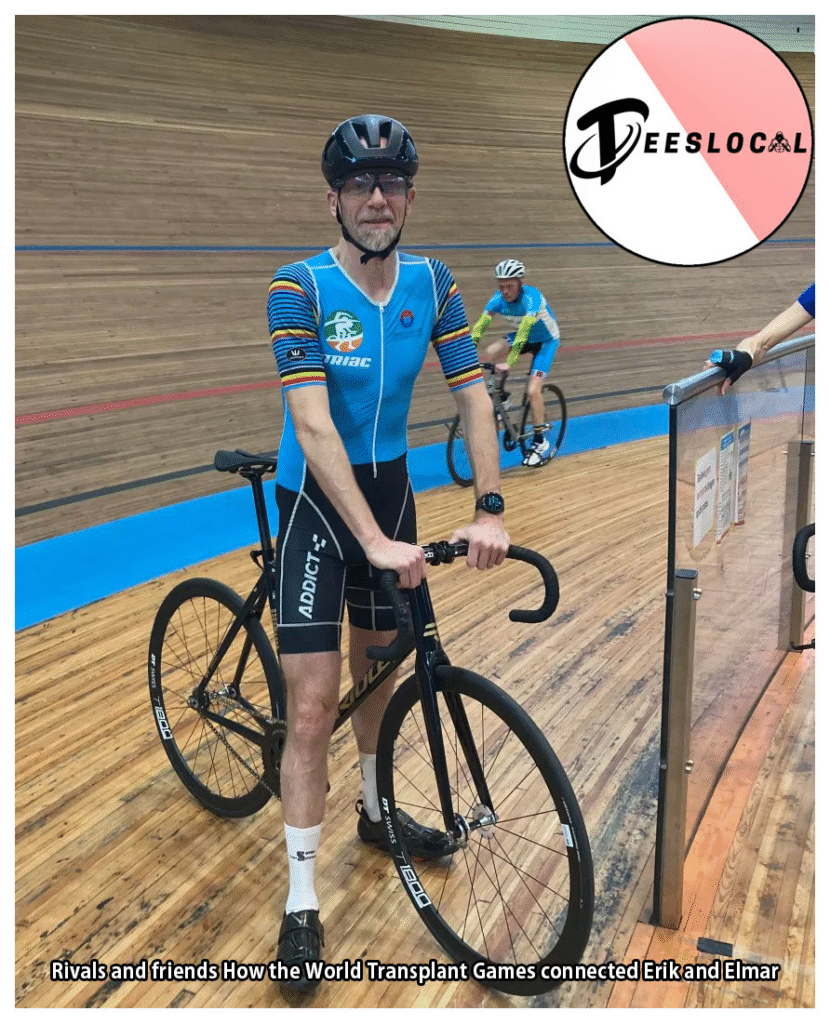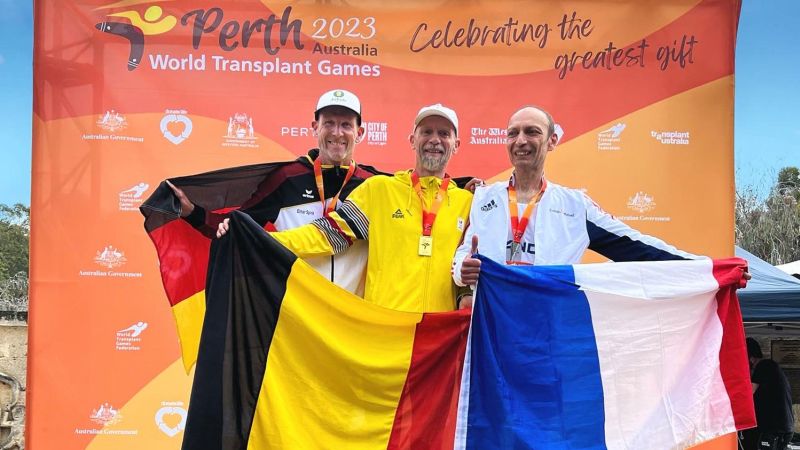Rivals and friends: How the World Transplant Games connected Erik and ElmarRivals and friends: How the World Transplant Games connected Erik and Elmar
Can a fierce sports rival also be a loyal fan?
For World Transplant Games competitors Erik Van Rompaye of Belgium and Germany’s Elmar Sprink, the answer is a resounding yes.
The two athletes met in 2023 at the Games in Perth, Australia – an Olympic-style event created to raise awareness about organ donation and inspire recipients to embrace fitness. Van Rompaye, 54, received a liver transplant in 2021, while Sprink, 53, had a heart transplant in 2012. Both were already seasoned endurance athletes before their surgeries.
Van Rompaye had heard that Sprink was “the man to beat” in Perth – and he was right. In both the 5K road race and the sprint triathlon, Van Rompaye edged past the German to claim gold, with Sprink taking silver and bronze. On the medal podium, their rivalry quickly turned into camaraderie when they discovered they had something else in common: both had raced at the legendary IRONMAN World Championship in Hawaii, one of the toughest triathlons on earth.
“Before that, I didn’t know anyone doing such long-distance sports after a transplant,” Van Rompaye told CNN. “It wasn’t common at all.”
Since then, the pair have kept in touch, swapping tips on training, recovery, and navigating the realities of aging athletes. This week, they’ll meet again at the 2025 World Transplant Games in Dresden, Germany. But both face new hurdles: Van Rompaye is dealing with nerve damage from surgery that has slowed his running, while Sprink is recovering from a back injury that forced him to miss a half marathon.
This year’s Games bring together around 2,200 participants from 51 countries – including recipients, donors, and donor families – competing in events from swimming and track to badminton and pétanque.
Why they compete
For Sprink, who has completed three World Transplant Games, the grueling Cape Epic mountain bike race in South Africa, and the IRONMAN World Championship in Hawaii, sport is both a challenge and a lifeline. Van Rompaye’s new liver has allowed him to conquer the European Transplant Games, two Olympic-distance triathlons, and the New York City Marathon.
Both were soccer players and endurance racers before their transplants, and their goals remain lofty. Sprink hopes to qualify again for the IRONMAN World Championship, while Van Rompaye is training for the Ultra-Trail du Mont Blanc – a 171-kilometer race with nearly 10,000 meters of elevation gain.

“It’s about chasing dreams,” Van Rompaye said. “Life is about adapting. It’s not what happens to you, but what you do with it afterwards.”
Sprink agrees, adding that sport helps counter the side effects of the immunosuppressants all transplant recipients must take, including risks of cancer, diabetes, and weight gain. “If you stay active, eat well, and work out daily, you reduce some of those risks,” he explained. “It also keeps your mind from always thinking about the transplant.”
The bigger picture
The World Transplant Games are built on decades of research showing that exercise strengthens both the body and the mind of transplant recipients. For athletes like Van Rompaye and Sprink, the competition is about far more than medals – it’s about resilience, second chances, and proving what’s possible after life-changing surgery.




